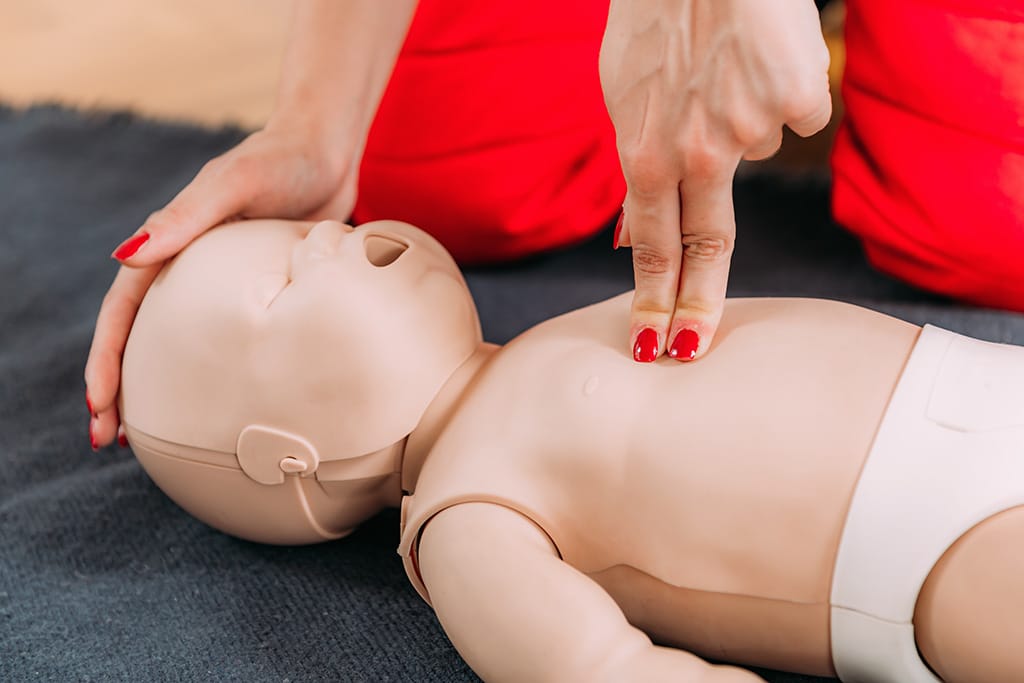

Every parent worries about their child’s safety, especially when it comes to the littlest members of the family: infants. While infants bring endless joy and love, they also require extra care and attention, especially in emergencies. Understanding CPR tailored for infants is one of the most important skills a parent can have. It prepares them to respond effectively if a crisis arises and helps protect their young ones from potential dangers.
CPR for infants is not the same as the techniques used on older children or adults. Infants have delicate systems, and their CPR requires a special approach that is gentle yet effective. Learning these techniques provides parents with the peace of mind that comes from knowing they can act swiftly to provide the right care in critical moments. This knowledge might just save a life.
Equipping yourself with CPR skills for infants means you can be a lifeline in unexpected situations, like a choking incident or sudden illness. It’s an empowering step that every parent should consider. Taking the time to understand and learn infant CPR makes you ready to handle emergencies and ensures you’re giving your child the safest possible start in life.
Performing CPR on an infant is different from performing it on an adult. Infants are smaller and more fragile, which requires a gentler approach. Their bodies need delicate handling to ensure effectiveness without causing harm. The compressions are done with just two fingers, and the breaths must be softer and smaller, specifically designed to suit their tiny lungs. These subtle differences highlight the importance of specialized training for infant CPR.
Understanding infant CPR is vital for parents. Infants can choke or stop breathing without warning, often from things like small objects or certain illnesses. This knowledge prepares parents to react swiftly and appropriately, providing critical care that can save their child’s life. The ability to perform CPR with confidence can prevent panic and ensure the safety and well-being of their infants during such emergencies.
Common emergencies that might require infant CPR include choking on food, sudden respiratory issues, or even drowning incidents. Infants explore the world with their mouths, increasing the risk of choking. Respiratory problems can arise quickly due to colds and other illnesses. In these stressful moments, knowing how to provide CPR could make the ultimate difference between life and death.
The core of infant CPR is centered on two main components: chest compressions and rescue breaths. These elements work together to keep blood flowing and oxygen circulating, which is crucial for an infant’s survival in an emergency. Chest compressions for an infant must be gentle yet effective, applying pressure with just two fingers on the center of the chest. This technique ensures that the delicate structures of an infant’s body are protected while still stimulating the heart to pump blood.
Rescue breaths are equally important in infant CPR. These breaths are given with care, providing just enough air to make the chest rise. This helps deliver much-needed oxygen to the infant’s lungs, ensuring the brain and other vital organs receive essential oxygen. Mastering the balance between chest compressions and rescue breathing is key to effective life-saving efforts.
AEDs, or automated external defibrillators, also play a role in infant CPR. Though mainly used for adults, AEDs can be tailored for infants. They adjust the energy levels to safely provide necessary shocks to a child’s small body.
Understanding when and how to use an AED can enhance the effectiveness of CPR, offering another layer of support in critical situations. This knowledge is a powerful tool in a parent’s emergency toolkit, reinforcing the comprehensive care that may be required.
Getting CPR certified is invaluable for parents. Certification provides a foundation in life-saving techniques specifically designed for infants, equipping parents with the confidence to handle emergencies calmly. This training offers peace of mind, knowing that you can act effectively in situations where every second counts. Beyond personal assurance, certification also demonstrates a commitment to child safety, enabling parents to become advocates for their family’s and community’s well-being.
CPR classes provide a wealth of skills. Parents learn to recognize signs of distress that others might miss. Classes also teach parents how to prevent accidents before they happen, identifying potential hazards in everyday environments. They cover vital topics such as recognizing respiratory distress, pinpointing symptoms of airway blockage, and understanding different emergency scenarios. These skills collectively prepare parents to act swiftly, reducing risks for their children.
Certification builds confidence, enabling parents to respond to emergencies with controlled precision, whether at home or elsewhere. Knowing how to perform CPR and utilize techniques like the Heimlich maneuver ensures that parents are ready for various urgent situations. Confident parents provide stability and security to their families, emphasizing the critical nature of being CPR-certified.
Dallas offers a range of opportunities for parents interested in infant CPR training. Classes focused on infants ensure you’re learning techniques specifically suited to their needs. These classes are available at locations throughout the city, making it convenient for parents to include CPR training in their schedules. With options like evening and weekend sessions, fitting training into your busy life has never been easier.
Local schedules allow for flexibility in attending classes, accommodating both working parents and those with other commitments. Training sessions are designed to suit varying schedules, ensuring that all parents can access the education needed to keep their children safe. Class options reflect the importance of accessibility in providing life-saving skills to everyone who cares for an infant.
Participation in CPR training goes beyond personal preparedness. It strengthens community safety, empowering parents with skills that can make a difference beyond their own homes. When more community members are trained, everyone benefits from a safer environment. Encouraging others to join in these classes contributes to a broader network of safety and preparedness, underscoring the collective value of CPR education.
Understanding and being prepared to perform CPR for infants is a vital part of parenting. This readiness not only protects your child in emergencies but also contributes to your peace of mind, knowing you can help when minutes matter. The knowledge gained from CPR training empowers parents, enabling them to care for their children with confidence and trust in their skills.
The journey to becoming CPR certified also opens doors to lifelong learning. Staying current with regular renewals helps parents keep ahead with the latest techniques and updates in emergency response. The skills learned extend beyond parenting, offering valuable insights into community safety and personal growth as an informed citizen.
Now is the time to take charge and equip yourself with these invaluable skills. At Rapid CPR Dallas, we offer tailored infant CPR classes in Dallas that fit into your busy schedule, ensuring you feel confident and prepared. Join our community of well-prepared parents and safeguard your family’s future with our expert CPR training and certification. Book now.

